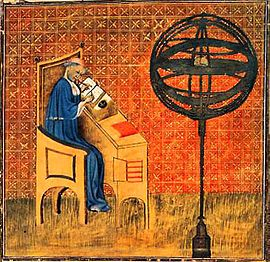[Holy Roman Emperor Rudolf II – a great and important Renaissance patron and follower of the occult arts, including astrology and alchemy, but a poor ruler. His greater legacy is as a patron of the arts; his great failures were as a statesman. He was forced to abdicate in 1611.
The 1783 article which follows, marvels at the neglect of clear political realities as Rudolph’s enemies prepare for war, in favour of a blind obsession with fruitless astrology and further notes the inevitable judgement of time that would eventually pass its gaze over the author’s time, as it will our own.]
A little background:
“Rudolf II of Austria (July 18, 1552–January 20, 1612), Holy Roman Emperor as Rudolf II (1576–1612), King of Hungary and Croatia, as Rudolf (1572–1608), King of Bohemia as Rudolf II (1575–1608/1611) and Archduke of Austria as Rudolf V (1576–1608). He was a member of the House of Habsburg.Rudolf’s legacy has traditionally been viewed in three ways: an ineffectual ruler whose mistakes led directly to the Thirty Years’ War; a great and influential patron of Northern Mannerist art; and a devotee of occult arts and learning which helped seed the scientific revolution.”Pasted from <http://en.wikipedia.org/wiki/Rudolf_II,_Holy_Roman_Emperor>
“Astrology and alchemy were mainstream science in Renaissance Prague, and Rudolf was a firm devotee of both. His lifelong quest was to find the Philosopher’s Stone and Rudolf spared no expense in bringing Europe’s best alchemists to court, such as Edward Kelley and John Dee. Rudolf even performed his own experiments in a private alchemy laboratory. When Rudolf was a prince, Nostradamus prepared a horoscope which was dedicated to him as ‘Prince and King’.
Rudolf gave Prague a mystical reputation that persists in part to this day, with Alchemists’ Alley on the grounds of Prague Castle a popular visiting place.Pasted from <http://en.wikipedia.org/wiki/Rudolf_II,_Holy_Roman_Emperor>
The article:From 1783 – In The English Review, Or, An Abstract of English and Foreign Literature:
“The house of Austria, against which this gathering storm was directed, beheld it with astonishing indifference. The emperor, Rhodolphus, more intent on observing the motions of the heavenly bodies, than on watching the movements of his enemies, indulged a natural love of science, the only passion that is able to extinguish the pride of power in the breasts of princes.
He had given up, with little reluctance, to his brother Matthias, the government of Hungary, Moravia, and Austria, and soon after he also resigned that of Bohemia.
With the title of emperor, he lived a private man. It is matter of greater wonder that the king of Spain, in whom the passion of religion did not eradicate all the feeds of ambition, appeared unconcerned at the warlike preparations of an inveterate enemy. Whether the ministers of Spain trusted to the success of those plots they had formed against Henry in his own palace; or, that with the superstitious credulity of the age in which they lived, they confided in the completion of those predictions that about this time were so frequent in the mouths of Catholics concerning the sudden death of the king of France (*); or that they weakly imagined this monarch had no other object in view than the expulsion of Leopold from the states of Juliers; or from whatever secret cause, it is certain, that amidst a general and anxious suspence, the court of Madrid discovered not any symptoms of alarm.
The world, struck with the mighty preparations of France, wondered at the serenity of Spain, when an event happened which proved how much human affairs are governed by causes beyond the reach of princes; which frustrated the well laid designs of the great Henry, and supplied the want of vigilance and wisdom in the counsels of Philip.
The death of the French monarch, and the various effects of this great event being described with a minuteness which perhaps belongs rather to French than to Spanish history, the Editor writes as follows.
‘After the death of Henry, his friends and allies had reason to apprehend that the vindictive passions of the house of Austria would be heightened and inflamed by the hope of gratification. The Italian states especially, overawed by the power of Philip in Naples and in Lombardy, trembled lest the Spanish arms should over-run all Italy. But Charles Emanuel, duke of Savoy, whose noble mind was inspired with the pride rather than the despondency of grief, endeavoured to rally the broken forces of the league, and to unite them once more into a compact and formidable body….’
Footnote:
* This conjecture may appear at first sight, to certain readers, wholly absurd and groundless. Nevertheless it will not seem altogether extravagant, if we reflect on the power of universally received prejudices on even the strongest minds.About this time, and even long after it, the science of judicial astrology was studied by philosophers of the highest reputation, with great gravity, and, as they firmly believed, with great success. There is in the university of Petersburgh, a very able mathematician, who is making great progress in judicial astrology at this -very day [Faust.com note: 1783]. It is certain that the duke of Lerma was a firm believer in the doctrines of this science. See Anecdotes du Ministerc du Comte due D’Olivarez.
Men of sense, of the present times, struck with that mixture of genius and extravagance which distinguishes the writings of antiquity, are at a loss how to reconcile so much reason with such great extravagance; and suspect that many of the opinions delivered in those writings were not real, but popular and affected. There is not a doubt but posterity will entertain similar doubts concerning some of the doctrines of the seventeenth and even eighteenth century. Men are ever changing their opinions, yet ever wondering that the world did not always think as they do now.Pasted from <http://books.google.ca/books?pg=PA462&dq=astrology&ei=SYVwTZGuMI_EgAexgfVB&ct=result&id=FjMJAAAAQAAJ&output=text>


